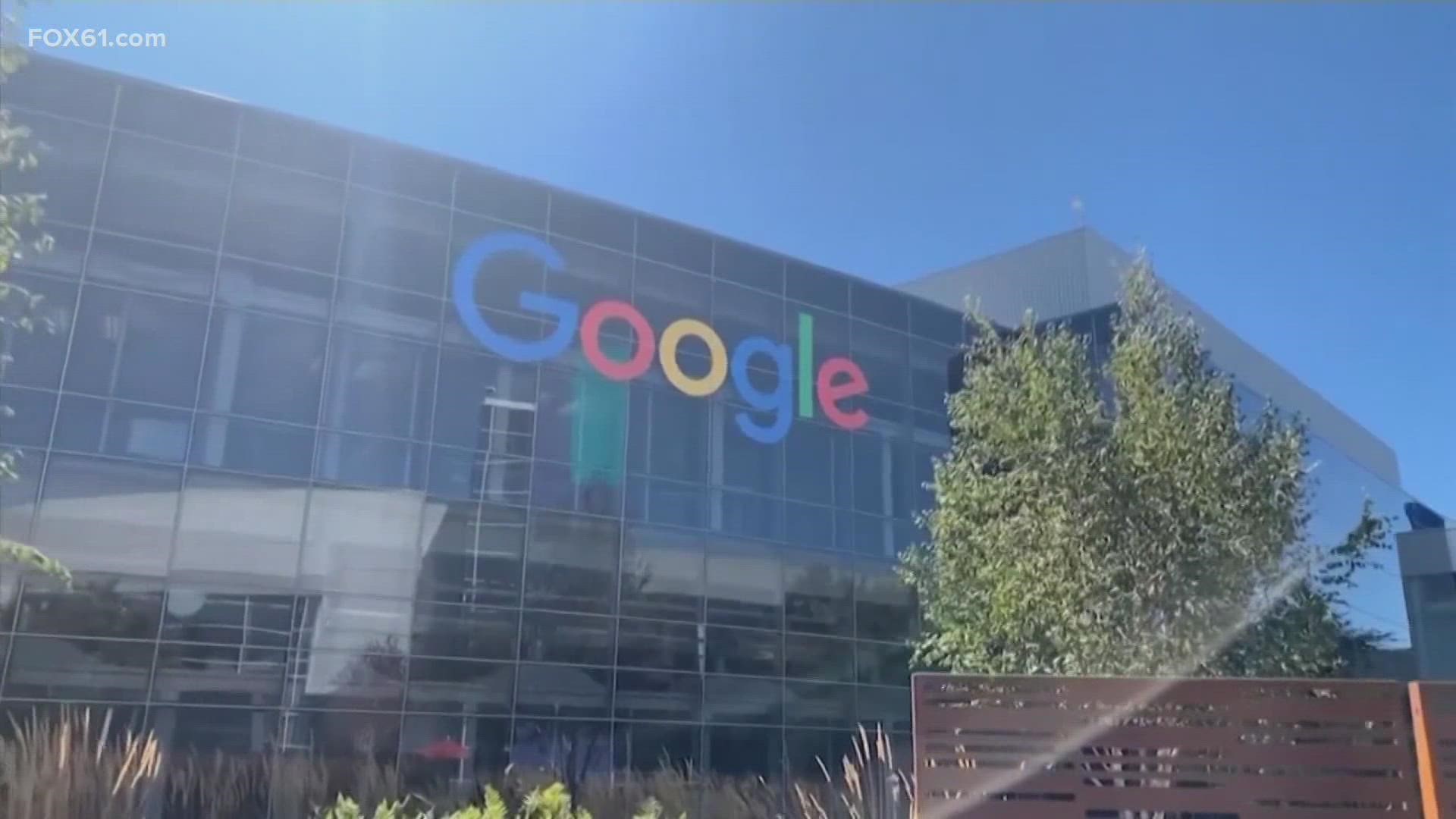HARTFORD, Conn — Internet giant Google has agreed to pay nearly $400 million to 40 states in a settlement over its location tracking, said Connecticut Attorney General William Tong on Monday.
The $391.5 million settlement is the largest multistate privacy settlement in U.S. history. Connecticut will receive more than $6.5 million from the settlement.
Tong called it a "historic win" for consumers at a time when more and more people are relying on technology. In a statement, Tong called Google's actions an "unacceptable invasion of consumer privacy and a violation of state law," saying that during the investigation, they found that Google continued to collect personal information when users told them not to.
"Location data is among the most sensitive and valuable personal information Google collects, and there are so many reasons why a consumer may opt-out of tracking," Tong said. “[...]People deserve to have greater control over—and understanding of—how their data is being used.”
Department of Consumer Protection Commissioner Michelle Seagull said that consumers have a right to know if, and how, their data is being used.
“Companies like Google have a duty to be transparent in their data collection and advertising practices, and clearly give consumers the option to opt out of data sharing, including location tracking," said Seagull.
This year, Connecticut passed the Connecticut Data Privacy Act—one of the first comprehensive consumer privacy laws in the country.
The act provides Connecticut consumers baseline privacy rights, including the right to access, delete, and stop the sale of their data.
It also requires companies to be transparent about how they use and secure data, as well as obtain consumer consent before collecting certain categories of sensitive information—including precise location data.
According to Tong's office, location data is a key part of Google’s digital advertising business. Google uses location data to build detailed user profiles and target ads to consumers on behalf of its advertising customers.
The group of attorneys general opened the Google investigation following a 2018 Associated Press article that revealed Google “records your movements even when you explicitly tell it not to.”
The article focused on two Google account settings: Location history and web and app activity. While location history is “off” by default and must be enabled by a user, web and app activity, a separate account setting, is automatically “on” when users set up a Google account—including all Android phone users.
The investigation found that Google violated state consumer protection laws by misleading consumers about its location-tracking practices since at least 2014.
Tong's office said that specifically, Google misled users about the scope of the location history setting, the fact that the web and app activity setting existed and also collected location information. Google also reportedly misled the extent to which consumers who use Google products and services could limit Google’s location tracking by adjusting their account and device settings.
The settlement requires Google to:
- Show additional information to users whenever they turn a location-related account setting “on” or “off”;
- Make key information about location tracking unavoidable for users (i.e., not hidden); and
- Maintain a dedicated webpage that provides users with detailed information about the types of location data Google collects and how that data is used.
Tong also said the settlement limits Google’s use and storage of certain types of location information and requires Google to make its account controls more user-friendly.
The attorneys general of Oregon and Nebraska led the settlement negotiations, assisted by Arkansas, Florida, Illinois, Louisiana, New Jersey, North Carolina, Pennsylvania, and Tennessee. The final settlement was also joined by Alabama, Alaska, Colorado, Delaware, Georgia, Hawaii, Idaho, Iowa, Kansas, Kentucky, Maine, Maryland, Massachusetts, Michigan, Minnesota, Mississippi, Missouri, Nevada, New Mexico, New York, North Dakota, Ohio, Oklahoma, South Carolina, South Dakota, Utah, Vermont, Virginia, and Wisconsin.
---
Have a story idea or something on your mind you want to share? We want to hear from you! Email us at newstips@fox61.com
HERE ARE MORE WAYS TO GET FOX61 NEWS
Download the FOX61 News APP
iTunes: Click here to download
Google Play: Click here to download
Stream Live on ROKU: Add the channel from the ROKU store or by searching FOX61.
Steam Live on FIRE TV: Search ‘FOX61’ and click ‘Get’ to download.

